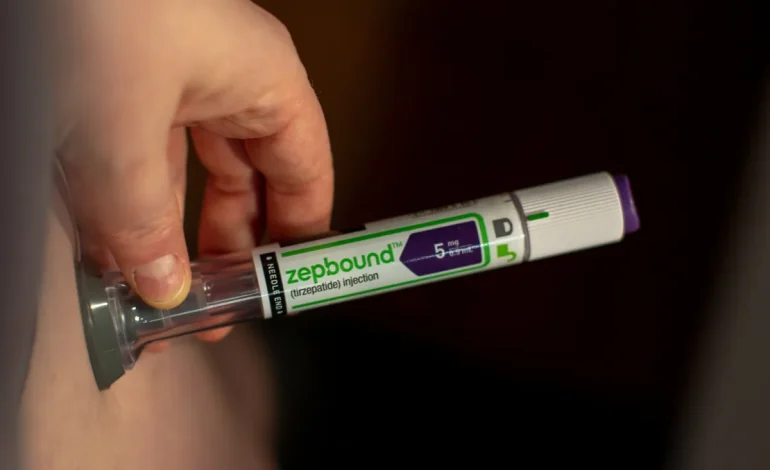In the first direct comparison between two of the leading obesity medications, Eli Lilly & Co.’s Zepbound (tirzepatide) demonstrated superior results over Novo Nordisk’s Wegovy (semaglutide) in both weight loss and waist circumference reduction, according to a new clinical trial presented at the European Congress on Obesity.
The 72-week trial, which included 750 participants with an average weight of 113 kilograms (249 pounds), found that patients using Zepbound lost an average of 18.4 centimeters (7.2 inches) around their waistlines, compared to 13 centimeters (5.1 inches) for those on Wegovy. This roughly two-inch difference is seen as clinically significant due to its implications for cardiometabolic health.
“Even a 5-centimeter difference can positively impact blood pressure and metabolic outcomes,” said Dr. Louis Aronne of NewYork-Presbyterian Hospital and Weill Cornell Medicine, who led the study.
The accumulation of visceral fat around abdominal organs is known to increase the risk of conditions such as heart disease, stroke, and type 2 diabetes.
Beyond waist size, Zepbound outperformed Wegovy in other key metrics. Participants on Zepbound experienced 47% more overall weight loss, with 32% losing at least a quarter of their body weight—double the rate seen with Wegovy. In terms of 10% weight loss, roughly 80% of Zepbound users achieved the mark, compared to about 60% of Wegovy patients.
Both drugs work by mimicking hormones that regulate appetite, but Zepbound activates two hormonal pathways, while Wegovy activates one. This dual-action mechanism may contribute to the increased efficacy observed with Zepbound. Both treatments showed comparable side effects, although Zepbound users reported more injection-site discomfort, and Wegovy users experienced a slightly higher rate of nausea-related treatment discontinuation.
The study, funded by Eli Lilly, comes as competition intensifies in the obesity treatment market. Novo Nordisk was first to market with Wegovy and its diabetes-focused sibling, Ozempic, but Lilly has quickly gained momentum with Zepbound and its diabetes equivalent, Mounjaro. Analysts project Mounjaro may soon match Ozempic in market share.
While Zepbound appears more effective in certain populations, experts caution that treatment choice should remain personalized.
“Many will do very well on semaglutide,” Dr. Aronne noted, “but those with higher levels of obesity may see better outcomes with tirzepatide.”
Lilly is expected to release more detailed subgroup data at the American Diabetes Association conference in June. Additionally, long-term outcomes on cardiovascular health and mortality are being studied, with results expected in 2027.










The latest news in your social feeds
Subscribe to our social media platforms to stay tuned